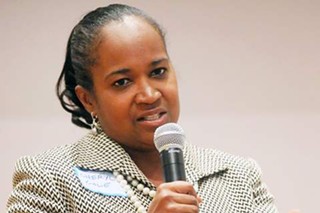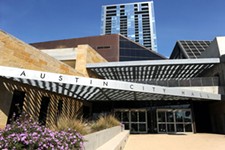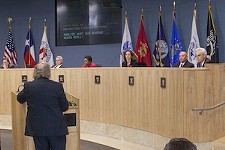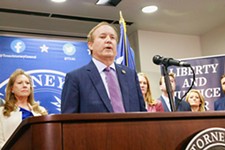AE Rate Proposal Double-Edged
Ratepayers expense also city income
By Michael King, 7:15PM, Mon. Feb. 6, 2012
Austin Energy's latest proposal -- presented last Thursday at City Council -- got a mixed reception from City Hall and the public, mostly on the expense side. The problem facing Austin is that every rate cut has an income consequence to city programs currently sustained by the utility.
At a minimum, the latest shift in AE's proposal will take time to review and debate, and Mayor Lee Leffingwell in particular expressed doubt that Council could meet AE's recommended timeline of a March approval. Much of that uncertainty was echoed in the Jan. 28 forum hosted by Mayor Pro Tem Sheryl Cole at ACC-Riverside. And the uncertainty wasn't just about rates rising; the other aspect of the municipally-owned utility -- AE's fund transfer to the city for programs like parks, libraries, public safety, and so on -- is in jeopardy if officials can't design a rate schedule that stabilizes AE's finances while still enabling the utility's underwriting of city programs.
Council Member Kathie Tovo contacted NewsDesk last week to reiterate her comment about the city's dilemma: "We need to get the message to the public that it’s one or the other – either it’s much higher taxes, or we get the benefit of being shareholders in Austin Energy." She wanted to add that "that's in the context of the AE funds transfer." That is, without that funds transfer (historically roughly 9.1 percent of AE's general revenue), the third largest revenue stream in the general fund (after property taxes and sales taxes), the city would have to find some way to replace that funding, and the only likely source is property taxes -- or instead, suffer major cuts to services. Mayor Pro Tem Cole made much the same point: "The concept of a municipally owned utility takes a while to wrap your brains around …" she said, "and that without it, we simply could not have one-third of the amenities we now enjoy – from parks, to libraries, to affordable housing, to police, to streets."
But Cole also emphasized that Council is looking for ways to minimize the impact of any rate increase on low-income ratepayers -- especially the impact of the proposed base rate of $22, which persists in the latest AE proposal. The current plan is to move additional money into the Customer Assistance Program, and make enrollment in CAP automatic for ratepayers who meet certain criteria.
In an email to NewsDesk, Cole elaborated: "There are a couple of different estimates that we have heard on the scope of need in the community. There are roughly 50,000 people on SNAP (food stamps), which would be one of the higher numbers considered. Last week's auditor report identified 26,000 customers on a variety of fixed income programs (SSI, Medicaid,etc...) that currently qualify for our Customer Assistance Program. Today only 8,000 or so are actually being assisted in a given month. I was hoping to identify that gap as a real issue that needs to be addressed in any rate design."
Cole noted that the Public Involvement Committee on the AE proposals recommended the city "focus more narrowly and help more deeply" in addressing the gap, and it would require roughly $7 million annually to pay the $22 monthly fee for 26,000 low-income ratepayers. "Of course, if the fixed charge amount goes down," Cole added, "so does the cost of providing this specific assistance. Even if we went after the larger 50,000 number, that should only cost roughly $14M using the same calculation."
Whatever rate design finally comes out of the AE debate, the CAP will be a central element of the discussion. The city remains between a rock and a hard place on its utility rates -- taking away (from itself) with one hand what it gives back with the other -- but a crucial question remains how to protect the residents least able to respond to a sharp rate increase, however financially necessary.
Got something to say on the subject? Send a letter to the editor.
A note to readers: Bold and uncensored, The Austin Chronicle has been Austin’s independent news source for over 40 years, expressing the community’s political and environmental concerns and supporting its active cultural scene. Now more than ever, we need your support to continue supplying Austin with independent, free press. If real news is important to you, please consider making a donation of $5, $10 or whatever you can afford, to help keep our journalism on stands.
Maggie Q. Thompson, June 13, 2022
Austin Sanders, Aug. 13, 2021
Michael King, Aug. 29, 2016
Amy Smith, March 1, 2013
Dec. 15, 2023
City Council, Austin Energy, Community Assistance Program








![Council Considering AE Settlement [UPDATE]](/imager/b/blogindex/1879581/563f/AustinEnergyLogo.jpg)




